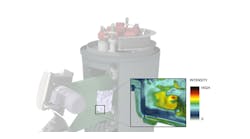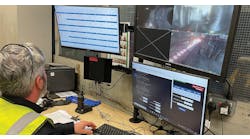Enterprise resource planning software is not new, but the increased importance of high-speed data in industrial operations has heightened the importance of ERP, and the software programs that execute it. ERP, according to IT research group Gartner, describes an integrated suite of business applications sharing a common process and data model and covering multiple operational end-to-end processes (including finance, HR, distribution, manufacturing, service, and the supply chain.) It’s an organizing system for business process data.
Making sense of data (incoming orders, resource data, production data, maintenance schedules, etc.) is a must for businesses of any scale now, but organizations selecting a new or upgraded ERP platform may lack insight to factors that may enhance their prospects for a reliable choice and a successful implementation.
A survey regarding ERP implementations by manufacturers presents some of the insights that will inform businesses preparing to transition to a new ERP platform, or upgrading their current version. Many C-level executives see risk in deploying a new ERP system, especially if the legacy system is functioning satisfactorily.
But, the survey — and the subsequent report by Ultra Consultants, The Real Facts about ERP Implementation: Busting the Myth of Failure, But Are You Overrating Your Success? — also suggests that it’s important to pursue updated ERP technologies in order for business to operate most efficiently.
Ultra Consultants Inc. is an independent consulting firm specializing in enterprise technologies for manufacturing and distribution sector. It commissioned the survey conducted by the research group Mint Jutras.
“This research study reflects the performance of current offerings of modern ERP systems now available to manufacturers and distributors” noted Jeff Carr, Ultra Consultants’ founder and CEO. “The report shows that the majority of ERP implementations drive value, are on-time and meet budget expectations. It also reveals the importance of setting goals for a project, and pushing the focus on people and processes, not just technology.”
The survey of 315 manufacturers and distributors, conducted in Q4 2018, focused on the success of their ERP implementations in terms of schedule, cost, and return on investment (ROI). It also examined respondents’ perceptions of their implementation goals and expectations, whether or not these were achieved, and why.
The respondents represent businesses with annual revenues ranging from $25 million to multiple billions, and enterprises with recent ERP implementations and others with more mature programs.
The study found 67% of respondents rate their implementations as “successful” or “very successful,” which counters a common perception. Most implementation efforts actually fulfill the organizers’ expectations (in terms of schedule, budget, and ROI), and the study shows a significant number of manufacturing and distribution companies actually overrate their success, and may fail to realize additional attainable returns as a result.
“ERP project disasters were quite common in the early days of ERP,” explained Cindy Jutras, president of the survey group. “It’s noteworthy that this study reveals as myth the once-cited high rates of failure in terms of schedules, costs, and payback.
“Solutions today are far more technology-enabled, easier to implement and use,” she continued. “Equally important is management support of the project, and change management initiatives.”
For example, the average survey participant selected 2.1 (out of 6) basic ways in which their implementation produced ROI. Do businesses not understand the potential for more? Or, are they simply not measuring it?
The survey also found implementing ERP reduced inventory levels for 38% of manufacturers and distributors, far less than what might be seen as successful. And, the most common goal that manufacturers and distributors set for their ERP implementations — “Improve selected performance metrics” — averaged just 2.84 among 10 different benefits beyond ROI
But the survey also identified the factors that lead to successful ERP implementations, mainly people and process, not software. Top-level managerial support, change-management strategies, and planning/organization were significant factors in successful implementation.
More important, according to the survey, a lack of business process re-engineering and product evaluation based on those processes were primary reasons for lack of success.
In terms of ERP adoption strategies, the survey concluded that fast, aggressive approaches are not equitable to “quick and dirty” implementation efforts. An objective, third-party effort can deliver enterprises a higher ROI, and faster than an in-house approach the survey concludes. Ultimately, such an assist may pay for itself.
The survey summary report concludes that manufacturers and distributors should never consider ERP implementation to be complete, and that the ROI should be sustainable. Businesses that approach an ERP implementation most aggressively produce more results, more quickly, the study determines.
The results show that engaging certified independent experts to help define ERP implementation goals, to set an aggressive (but achievable) schedule, and to stay on track is a useful investment.
Goal setting is particularly important, according to the survey results. If a current solution is not meeting organizational goals, or if goals were never established, it is advisable to pause and assess (or audit) the current solution to determine if it is performing to its full potential. Following this, the organization should determine if that full potential is sufficient to give the organization a competitive edge. If not, that would be the time to implement a new ERP technology.









